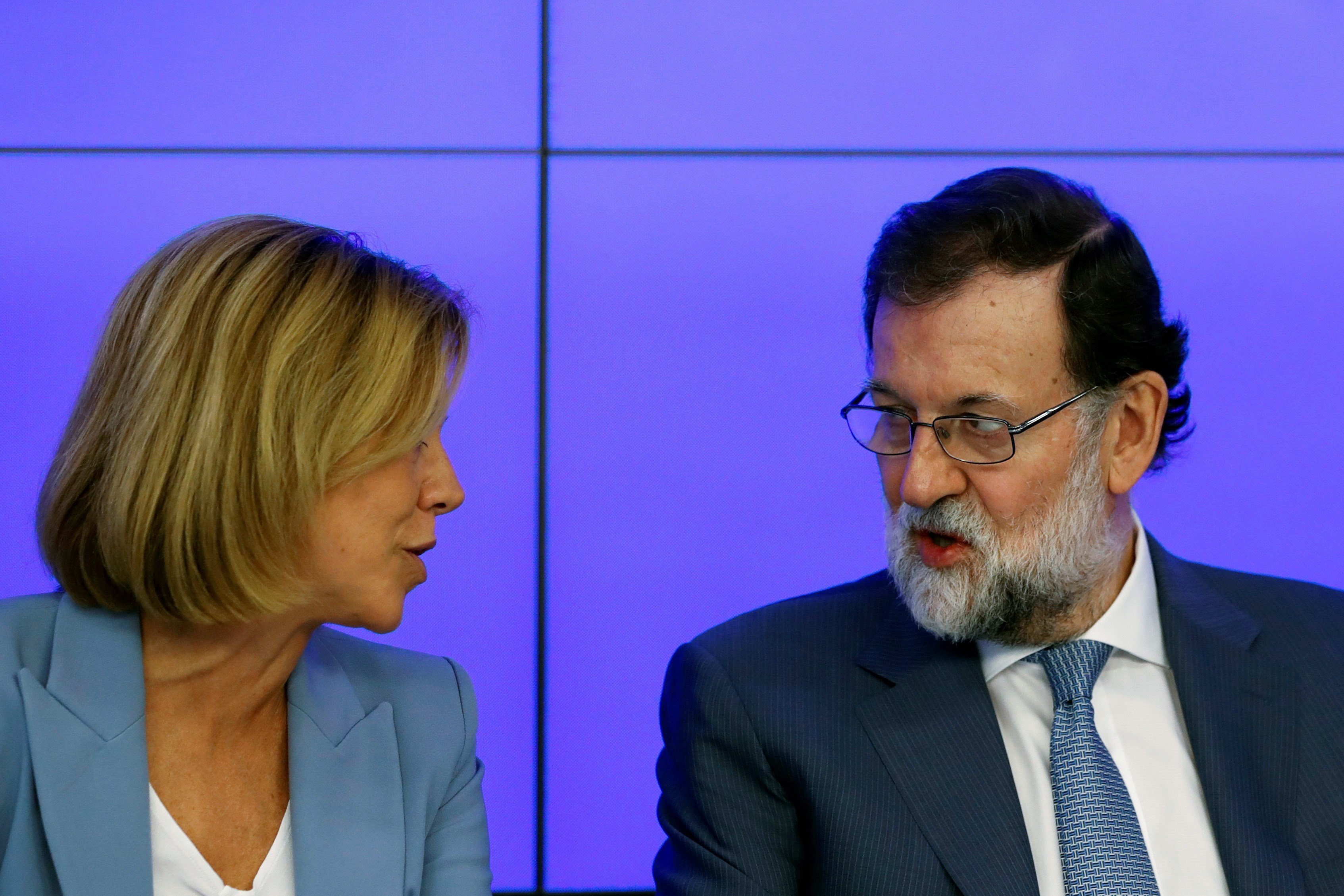Spain's governing PP (Popular Party) has not taken well to the support for the Catalan independence process from one of the parties in the Belgian governing coalition, Flemish nationalists N-VA, or the country's former prime minister, Elio Di Rupo, calling Mariano Rajoy a "Francoist authoritarian". This, in the same week as Belgium's justice system decided to leave Catalan president Carles Puigdemont and the four ministers with him free until a decision is taken on the arrest warrants against them. This seems a slight in comparison after Spanish judge Carmen Lamela of the National Audience court ordered preventive custody without bail for vice-president Oriol Junqueras and seven other ministers.
"Flemish politicians have to use Catalonia for their own [independence] process", replied the PP's vice-secretary of communication, Pablo Casado, about the N-VA's alleged opportunism in a press conference after the party's steering committee meeting this Monday. Casado said he hoped that in the end Belgium "would collaborate" and would comply with the European Arrest Warrant issued by a Spanish judge on Saturday. Casado dodged criticisms about the potential limited "guarantees" offered by the Spanish justice system, at the same time as vehemently denouncing Di Rupo's words "against Rajoy".
The fight started when the Belgian Interior minister (a member of N-VA) questioned the arrest of the "democratically elected" members of the Catalan executive. "What have they done wrong? They're only applying the mandate they received from their voters", said Jan Jambon on Belgian channel VTM on Sunday. PP's spokesperson in the European Parliament, Esteban González Pons responded by asking him to not give "lessons to a democracy like Spain's", criticising the Belgians for being "against equality, in the rejection of immigrants".
In the face of this criticism of their "accredited xenophobic history", N-VA's leader Bart De Weber said that "PP should stay quiet with respect to history. Too many people from that regime [Franco's] still have responsibilities there. It seems that they haven't learnt the lessons of the past: to not get involved in civil violence, to not imprison politicians. De Weber added that it "didn't matter" if you disagree with the independence process, because you don't imprison people "just for exercising democratic rights. You don't do that, and certainly not in the EU".
In the face of the criticism, Casado defended the application of article 155 of the Spanish Constitution, a fortnight after it entered into effect and less than two months before the election. "Catalonia has written brilliant chapters in its history, but this latest one is very dark. The Spanish government has done what it had to do and with the support of the majority of Catalans," he argued. The spokesperson insisted on the opportunity the 21st December elections represent to defeat the independence project and to negotiate with Ciudadanos (Citizens) and PSC (Socialist Party of Catalonia) to invest a government, or to form one.
More subtle was Spanish deputy prime minister Soraya Sáenz de Santamaría who expressed her "respect" for the Belgian system. "For the [Spanish] government, and as we're talking about a system as democratic as Spain's, maximum respect for the decisions of the judges of Spain, of Belgium and of all those states which respect the separation of powers and the independence of the judiciary," she said to reporters this morning. In response to a later question, however, about "president Puigdemont", she replied emphatically "ex-president" and turned away with a smile.
Rajoy, Sunday in Catalonia
The Catalan branch of PP will present its list of candidates for 21st December in Catalonia this Sunday. The list will be headed by Xavier García Albiol and the presentation will be attended by Rajoy and "a good part" of the PP's national executive according to Casado. He said that the election campaign will be "very visible", as, in his opinion, his is "the party which has brought Catalonia out of this bad phase". This echoes a sentiment stated by Rajoy last week, who told a PP meeting that the crisis is over and Spain "has won".

